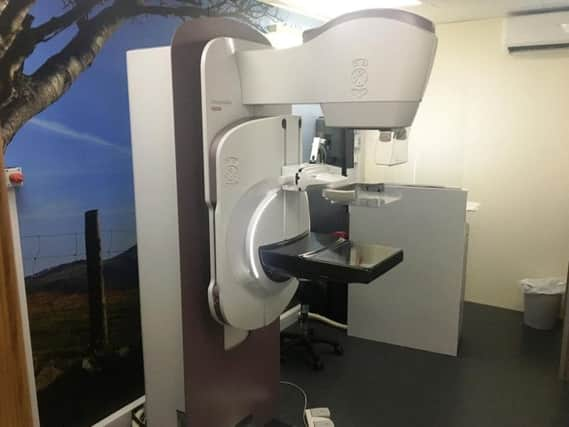Overhaul of cancer screening after computer errors revealed


The review has been launched following “recent issues” with breast and cervical cancer screening, NHS England said.
Yesterday it emerged that up to 48,500 women had not received information on cervical cancer screening after a “system error” at Capita, which is contracted to provide support services across England.
Advertisement
Hide AdAdvertisement
Hide AdThe health minister, Steve Brine, called the blunders “unacceptable”, saying Capita has confirmed that the incident was caused by files from its call and recall operations team not being correctly sent and uploaded.
Capita has accepted responsibility and apologised.
The mistake follows the revelation in May that between 135 and 270 women may have had their lives cut short because of failures in breast cancer screening, following a computer error.
Screening can help spot problems before symptoms develop, when cancer is often easier to treat. In some cases it can prevent cancers from developing in the first place.
There are three national cancer screening programmes in England, for cervical, breast and bowel cancers.
Advertisement
Hide AdAdvertisement
Hide AdNHS England’s national medical director, Professor Steve Powis, said: “Screening is a vital and effective tool in our fight against cancer. However, recent issues with breast and cervical cancer screening have shown that we need to look closely at these existing programmes.”
The review, which will also look at how to encourage more eligible people to be screened, will be led by Professor Sir Mike Richards, who was the NHS’s first cancer director and is the former Care Quality Commission’s chief inspector of hospitals.
He said: “There is no doubt that the screening programmes in England save thousands of lives every year. However, as part of implementing the NHS’s long-term plan, we want to make certain they are as effective as possible.
“This review provides the opportunity to look at recent advances in technology and innovative approaches to selecting people for screening, ensuring the NHS screening programme can go from strength to strength and save more lives.”
Advertisement
Hide AdAdvertisement
Hide AdHe will lead a team which will assess current screening programmes and recommend how they should be organised, developed and improved, as well as advising on possible changes to currently outsourced provision.
The review is expected to report by next summer.
Meanwhile, a pioneering cancer treatment has been recommended for leukaemia patients under the age of 25.
CART-cell therapy involves taking a person’s own immune cells and modifying them to fight their cancer cells, and has the potential to be a cure.
The National Institute for Health and Care Excellence said young people with relapsed or refractory B-cell acute lymphoblastic leukaemia will have access to tisagenlecleucel through the Cancer Drugs Fund. The therapy has a list price of £282,000.
Advertisement
Hide AdAdvertisement
Hide AdThe blood cancer charity Bloodwise said the announcement would come as a “huge relief for a number of worried families” and give children with leukaemia the real possibility of long-term survival.
Alasdair Rankin, its director of research, said: “We hope that people will be able to access the therapy as soon as possible.”